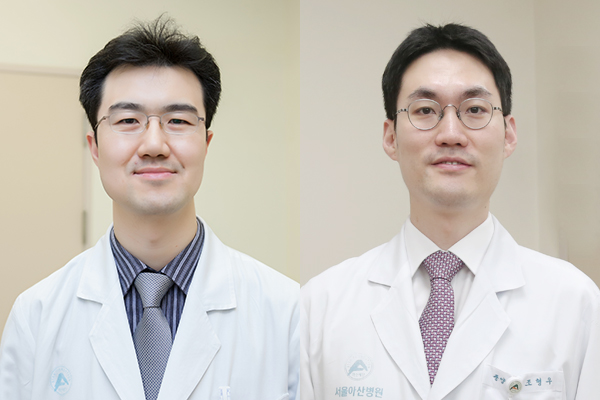-
- Global AMC MENU
- NEWS
- HEALTH
- PEOPLE
- Introduction

▲(from the left) Professor Dok Hyun Yoon and Professor Hyungwoo Cho of the Division of Oncology at Asan Medical Center
CAR T-cell therapy (Chimeric Antigen Receptor T cell therapy) is a treatment method that involves expressing T-cells on chimeric antigen receptors that respond to specific cancer cells and infusing them into patients to eliminate cancer cells. Existing CAR T-cell therapies, including Kymriah, all use an antibody binding site derived from mice called FMC63. However, the new treatment, 'AT101,' utilizes a humanized antibody binding site that is closer to cancer cells compared to FMC63. Research results verifying the effectiveness and safety of AT101 have recently been published.
Team led by Professor Dok Hyun Yoon and Professor Hyungwoo Cho of the Division of Oncology at Asan Medical Center conducted a study from March 2022 to nine months on 12 patients with B-cell lymphoma who were refractory to treatment or had relapsed and were no longer eligible for standard treatment options. The patients were divided into DL(dose level)-1, DL-2, and DL-3 groups, and the administration of AT101 resulted in cytokine release syndrome and neurotoxicity of grade 3 or higher observed in only one person each. The overall response rate to the treatment was 91.7%, with a 100% response rate observed in the DL-2 and DL-3 groups.
Professor Dok Hyun Yoon stated, "Although this is a phase 1 study conducted with a small number of patients, considering that the response rates of existing treatments are around 40-50%, confirming the effectiveness and safety of AT101 is significant. Based on this study, we are currently conducting a phase 2 clinical trial, and we anticipate meaningful results."
The results of this study were recently published in the international journal ‘Molecular Cancer.’












